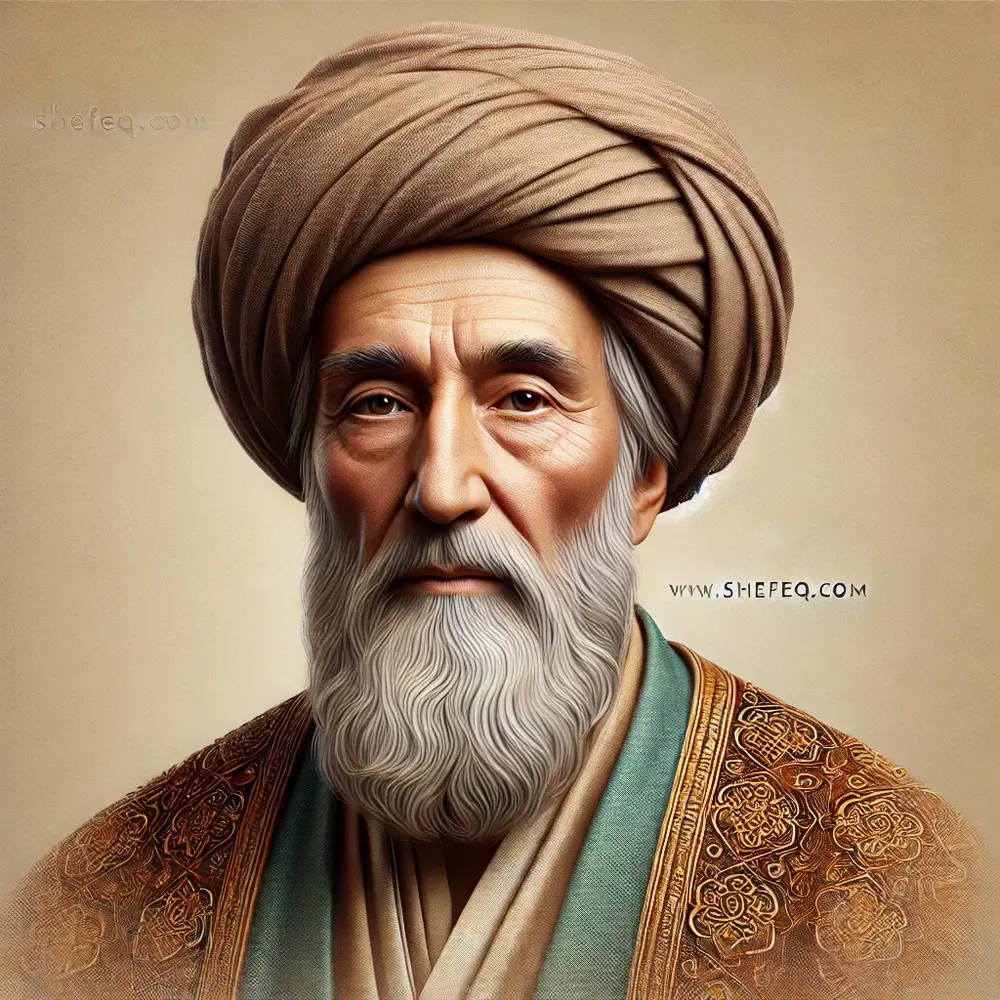Nizami Ganjavi is one of the greatest figures in Azerbaijani literature and holds a significant place in world literature as well. Living in the late 12th and early 13th centuries, this brilliant poet stood out as one of the brightest personalities of his era with his unique style and profound philosophical thoughts. Nizami's works have influenced not only the literature of his own time but also the cultural and literary landscape of future generations.
The Life of Nizami Ganjavi
Although the exact date and place of Nizami Ganjavi’s birth are not precisely known, it is generally accepted that he was born around 1141 in the city of Ganja. At that time, Ganja was a major cultural center where various peoples and civilizations coexisted. Nizami’s works reflect this rich cultural atmosphere and hold great importance for both his era and those that followed.
It is likely that Nizami received his early education in Ganja. He began to write poetry and developed an interest in philosophical subjects. In Nizami’s era, poets did not limit themselves to love and heroism; they also tackled ethical and philosophical questions. Nizami continued this tradition by addressing the meaning of life, the inner world of the individual, societal norms, and justice in his writings.
The Works of Nizami Ganjavi
Nizami’s literary legacy is a result of his vivid imagination and deep observations of the world around him. He was prolific in various genres, especially in epic poetry. His most renowned works include “Khosrow and Shirin,” “Layla and Majnun,” “Iskandarnama,” “Seven Beauties,” and “The Treasury of Mysteries.”
Layla and Majnun
"Layla and Majnun" is one of Nizami's most celebrated works and a classic love story known across many cultures. While it tells a tale of romantic love, it also offers deep reflections on the human soul, spiritual evolution, and self-awareness. The love between Layla and Majnun symbolizes a struggle between internal passion and the external pressures of society and tradition.
Khosrow and Shirin
This epic combines love and power, presenting the romance of Khosrow and Shirin as they navigate the challenges of political duty and personal emotion. It explores governance, societal responsibilities, and personal identity, offering timeless moral and ethical lessons.
Iskandarnama
“Iskandarnama” tells the story of Alexander the Great, not just as a historical figure, but as a symbol of ambition, leadership, and self-discovery. The poem offers philosophical insights on human achievement, purpose, and the quest for greatness.
Seven Beauties
This poetic masterpiece presents seven idealized female figures, each embodying a different virtue. Through this work, Nizami contemplates the essence of femininity, morality, love, beauty, and the impact of justice on human nature.
The Treasury of Mysteries
This philosophical poem is a compilation of Nizami's reflections on the nature of the universe and the inner life of man. It explores the spiritual connection between the individual and society and offers metaphysical interpretations of existence through the medium of poetry.
Nizami’s Philosophy and Worldview
Nizami’s poetry is not just lyrical—it is deeply philosophical. He delves into the human conscience, morality, and spiritual awakening. Themes such as justice, love, beauty, and human development play a central role in his works. Nizami emphasized that true understanding of life and the world begins with inner awareness.
His philosophy is not only concerned with individual growth but also with the betterment of society and governance. In his works, the importance of self-knowledge, living justly and compassionately, and striving for a moral life are consistently emphasized. Nizami also engaged with the social and cultural issues of his time, offering wise and thoughtful approaches to their resolution.
Nizami Ganjavi's Literary Legacy
Nizami’s works have greatly influenced not only Azerbaijani literature but also global literary traditions. His poetry served as inspiration for countless poets and writers across centuries. The depth and wisdom found in his works extend beyond literature into the realms of philosophy, history, and cultural studies.
His masterpieces, such as "Layla and Majnun" and "Khosrow and Shirin," have become legendary love stories that transcend time and place, offering universal themes and human truths that continue to resonate. His legacy is not confined to his own era—it is a gift to all of humanity.
Conclusion
Nizami Ganjavi was not only a great poet and writer, but also a thinker who journeyed into the depths of culture and philosophy. His works search for the meaning of life and the human condition, and they invite readers to reflect deeply on the development of both society and the individual. His legacy has left a lasting impact on both Azerbaijani and world literature, and that influence continues to this day. His poems are not only a treasure for literary enthusiasts but also a window for everyone into the richness of human thought and cultural heritage.
Poetic Reflection
Do not be deceived by the beauty you see—
True beauty lies within the soul.
The outside may shine like the sun,
But inside, it may be a night of shadow and sorrow.

